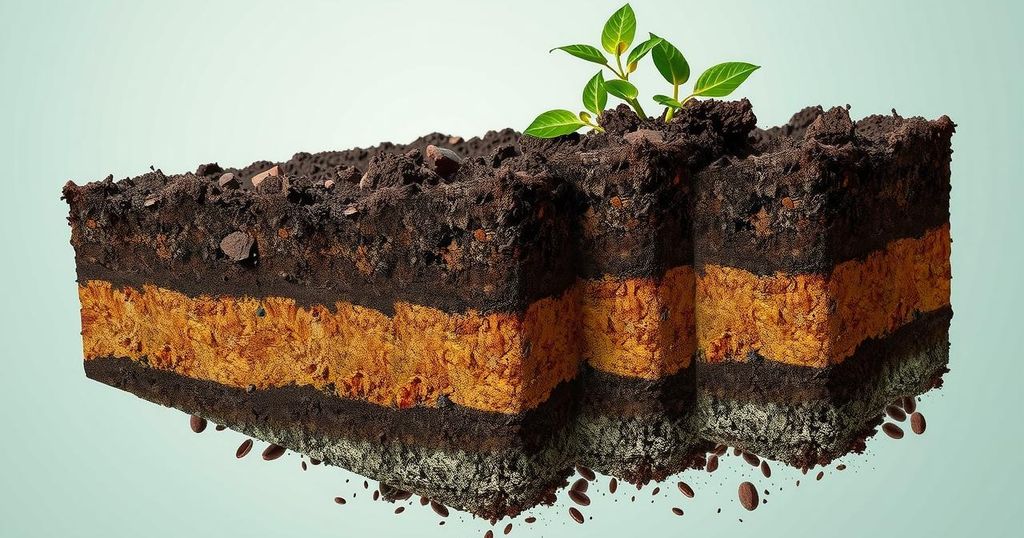The Importance of Soil Health in Combating Drought and Climate Change
Drought is expected to impact 75% of the global population by 2050, driven by climate change and industrial farming which degrade soil health. Soil is the largest living ecosystem, vital for food production and carbon sequestration. The UN’s COP16 highlighted the need for regenerative agricultural practices, but significant barriers persist in transitioning. Addressing soil health is crucial for a sustainable future amidst rising environmental challenges.
As we approach 2050, projections indicate that 75% of the global population will experience drought, exacerbated by climate change and industrial farming practices that degrade soil health. Currently, drylands constitute nearly half of all non-Antarctic land, and the annual economic cost of drought reaches over $300 billion, largely attributed to environmental degradation. Despite the critical role soil plays in sustaining life, its degradation remains a neglected topic in mainstream discourse.
Soil serves as the foundation for food production and is the largest living ecosystem, containing more microorganisms in a single teaspoon than there are humans on the planet. This ecological diversity directly correlates to crop yields and water purification but is threatened by industrial practices such as monocropping and heavy machinery use, which lead to soil erosion and reduced carbon sequestration capacity. Disturbingly, releasing just 1% of Europe’s soil carbon could equate to the emissions from one billion cars. Continuing to neglect soil health risks increasing drought and food scarcity while intensifying climate change.
Recent discussions at the UN’s COP16 conference in Saudi Arabia highlighted the urgency of addressing soil degradation and promoting regenerative agricultural practices. Experts advocate for a shift towards farming that prioritizes ecosystem health over maximum yield, emphasizing methods such as agroforestry and reduced chemical use to support soil vitality. Farmers, however, face significant barriers to this transition, including financial risks and lack of support.
Successful cooperative models, such as Spain’s AlVelAl Association, demonstrate the potential for collective resources to ease the transition to regenerative farming. Advocacy for policy incentives rather than punitive measures is vital to encourage farmers to adopt healthier practices. Unfortunately, COP16 failed to produce an agreement on funding to support these initiatives, revealing the ongoing challenges in addressing agricultural sustainability.
Ultimately, prioritizing soil health is essential for securing food production and combating climate change. This most fundamental component of agriculture requires recognition and strategic support to realize its potential in mitigating environmental crises.
The article discusses the critical importance of soil health in the context of climate change and the growing threat of drought. With rising temperatures and industrial farming practices, soil degradation is increasingly prevalent, leading to dire economic and environmental consequences. The UN’s recent conferences underscore the need for immediate action to promote sustainable farming practices that can restore soil vitality and combat climate change. The concept of regenerative agriculture presents a promising approach to sustain soil health while improving the resilience of food systems.
The article concludes that addressing soil health is paramount for future food security and climate stability. As drought threatens vast populations and agricultural capabilities, a strategic shift towards regenerative practices is necessary. Although challenges remain, particularly in securing support for farmers transitioning these methods, the fundamental role of soil must be acknowledged to enact meaningful change in climate action and agricultural policy.
Original Source: www.forbes.com




Post Comment